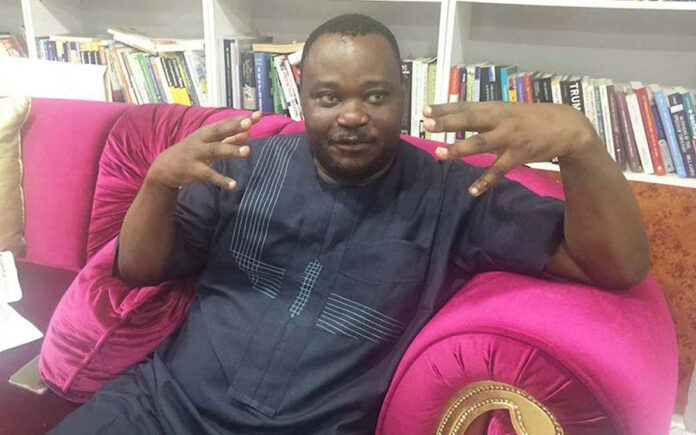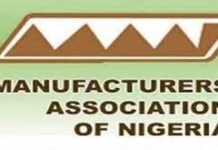The Senator representing Ondo South Senatorial District, Dr. Jimoh Ibrahim, in this interview on the sidelines of the just concluded IMF/World Bank Annual meetings in Marrakech, Morocco, reiterated the need for the Bola Tinubu-led administration to consider taking more debt in order to fix the ailing economy. Obinna Chima provides the excerpts:
During screening of Olayemi Cardoso as Governor of the Central Bank of Nigeria by the Senate, you said Nigeria shouldn’t be afraid of debt and you cited countries with huge debts that seem to be doing very well. What informed the position you canvassed given that the country is presently faced with a debt crisis?
Let me be honest with you, in Nigeria, the variables are weak. Debt ratio to Gross Domestic Product (GDP) is 30 per cent; cashflow to GDP – 1.3 per cent, worst in the world. So, our GDP is about $420 billion, but the cash available for President Bola Tinubu to spend when he came in was 1.3 per cent of the GDP. Is that enough a country forward? Then debt service ratio to GDP is 93 per cent. So, for a 100 per cent income you make, 93 per cent go into debt service and you have just seven per cent left. You have capital projects; you are recurrent expenditure, we are in contemporary times and there are innovations, Artificial Intelligence and so many things you are expected to do with just seven per cent of your income and it is impossible. You can see very clearly that the economy will not move forward. Now, the only way you can move the economy forward is by taxing the people more, because tax ratio to GDP is 18 per cent, meaning that there is room to tax more people. But the economic power of the people you want to tax is poor, so how do you tax them? So, what can you do since you cannot tax? If you do Ways and Means by printing money, you weaken your currency. So, what can you do again? You can only borrow. The only thing left for Nigeria is to borrow and from the economic indices, you will see that you can still borrow because your GDP to debt ratio is 30 per cent, meaning you still have 70 per cent opportunity to borrow. But lenders are not willing to lend the country money because its repayment ratio is poor. That is because at 93 per cent, you have only seven per cent chance of paying back. I won’t lend you money if I am a borrower because the chances of your repayment is just seven per cent out of 100 per cent. But we can run around it by talking to our friends and making them know that the reason for borrowing the money is to improve our economy and that when the economy rebounds, we can repay them. One of the things I suggested was that we should borrow in a large basket. You are in a small basket and so you are constrained. Expand your basket of borrowing to about $150 billion and then pay off your $70 billion. That means you can get a 30 per cent rebate if you are paying the creditors today. Allow direct disbursement from him to you, so that you can get 30 per cent discount; get a 10-year moratorium period for the entire large basket that you are doing and come back home to find out where things are bad and fix the economy and things would be fine. Again, what is the debt profile people are shouting about? You heard from the International Monetary Fund (IMF) that the debt ratio to the global GDP is 235 per cent. So, the world has even over-borrowed by 135 per cent of its assets. That is why economies are growing sluggishly. So, why are people complaining that Nigeria has so much debts? The United Arab Emirates is just 11 million people, three million indigenous and they are owing $168 billion and they are repaying $20 billion every year, and they have never defaulted. They have developed the place, the economy is open, regulation is reduced, people are doing business and people are avoiding your country and taking their businesses there. That is why today they can decide to ban some countries from entering their country. Look, with globalisation, things are not supposed to be easy and Nigeria must move very fast. If you don’t want to borrow, how will you run the economy?
If the government eventually decide to take your advice and borrow, what are the areas you thing the funds should be applied to for maximum impact and for the fund to be able to generate income and make repayment easy?
Invest it on your infrastructure, information technology (IT) and make sure that the economy is open for business, so that you can attract Foreign Direct Investment (FDI) from other countries. People should get your visa easy and if they get into the country, there must be infrastructure – rail and road transportation and security, to enable them to do their business and go back. You have fertile ground for agriculture. The United States imports onions of about $100 billion yearly, from India. We can ten times of that. We also need laboratory for farmers to be able to test their produce to be exported. Now, agricultural produce from Nigeria are taken to Ghana for laboratory test, before they are exported. Is that not complete madness? So, you can work on IT, innovation and infrastructure. Lastly, we have 11,886 federal government’s abandoned mega projects in Nigeria. Three of those projects are more than 60 per cent of Nigeria’s debts – Ajaokuta is $6 billion spent; Sure-P – $4.5 billion spent, and Second Niger bridge- $5.5 billion spent. Add them together, you will see that it is more than 60 per cent. Then there is 11,882 left that you not touched. In, my PhD thesis, I looked at 20 successful projects and 20 failed projects and I did statistical analysis to find out why some projects given to Julius Berger fail and why some given to same company succeed. My thesis has been published by Macmillan press. To me, you cannot have that large number of abandoned projects and be borrowing money. People would want to know if you are spending the money on the abandoned projects. For example, I was at Ajaokuta for my research and honestly, to do Ajaokuta as a greenfield project, you need $1.2 billion and to complete the existing Ajaokuta, you need $1.8 billion. So, you have to find out which is the best option for you. But when you do Ajaokuta, you will be able to arrest 25 per cent of your importation of iron and that helps your economy to grow. Every Nigerian wants to build a house and I estimate that there are about 350 million Nigerians and any house you build, 30 per cent of the iron is imported and that takes off about 30 per cent of your budget value. So, why are you not fixing Ajaokuta so that you don’t depend on Russia for the importation of iron.
You are a top member of the ruling All Progressives Congress. Have you had time to discuss some of these ideas with the president and his cabinet members?
I am not a canvasser of knowledge that doesn’t want reward for it. I am not hoarding it otherwise I won’t be saying what I just told you. But what I am saying is that those who have the pain should be able to ask for solution. I have pushed some of these ideas in the Senate where I have moved quite a number of bills. For example, I brought the bitumen development bill. If we have bitumen for example, it is an alternative to oil and that means we can just be fine as a country and you can have your forex coming in. The problem here is that forex is not coming in as expected. So, it is not as if we are not talking to policymakers, we just do it at a level where you can earn your respect.
This government has come up with wholescale reforms and it appears as if Nigerians are suffocating. Do you think that we have the buffers to carry out all these reforms at same time?
Well, it is not as if they are reforms that are too fundamental that cannot be contained. The challenge is that the present government did not inform Nigerians in absolute terms, what they met on ground, so that if you are doing assessment, you will know who to blame and when you are assess this government, you will know what to benchmark its achievements with. When the Bola Tinubu government came, GDP to current account was completely deficit and during President Goodluck Jonathan it was positive. President Muhammadu Buhari gave a deficit of N16 billion GDP to current account. That was just in the first year when he came in. you can imagine that he spent eight years in damaging the economy. So, when Tinubu came in as a new government, we are not saying criticise Buhari, but publish all the metrics let Nigerians know where we are and that is the job of the Minister of Finance is to publish the metrics to Nigerians let us know where we are. Bola Tinubu means well to Nigerians, he wants to do a lot, but at same time he doesn’t want to wound the Buhari’s administration. That is where the conflict is. It is important to tell Nigerians what was handed over to you. He got a handover note from Buhari, he should publish the summary let Nigerians know the state of affairs, so that people would understand the background to the ongoing reforms and then they can know that the pain can be in the long-run or in the short-run. I think lack of information is the challenge. When people don’t have adequate information, no matter how good your intentions are, it can be misinterpreted.
Do you have plans to contest the Ondo State governorship election next year?
I am available if Ondo State people want me. But I am not going to do a do or die politics. If I put myself forward, if they want me, they would vote for me and I will help to put things in normal shape. But, if for any reason they don’t want me, I will be very glad because it would be a fantastic opportunity for me to enjoy my retirement and I will return to Cambridge to continue supervising my PhD students.
Are you going to contest the primary election?
If I am currently a Senator from the south, that means I am the political leader from the south and if you throw political groundnut around, you should know where the probability is. There are high chances, but I have not made up my mind. I have told the governor and I have enlisted his consent; I am going to tell the President and other stakeholders in my State. If any of them advise me not, I will accept it. I don’t really have to kill myself about it because God has been so kind to me. That is why I said I will not do a do or die politics. If they see my credentials and feel this Oxford-Harvard-Cambridge trained would be better, that’s fine, but I don’t need to make myself a nuisance to anybody because I want to be a governor.




















